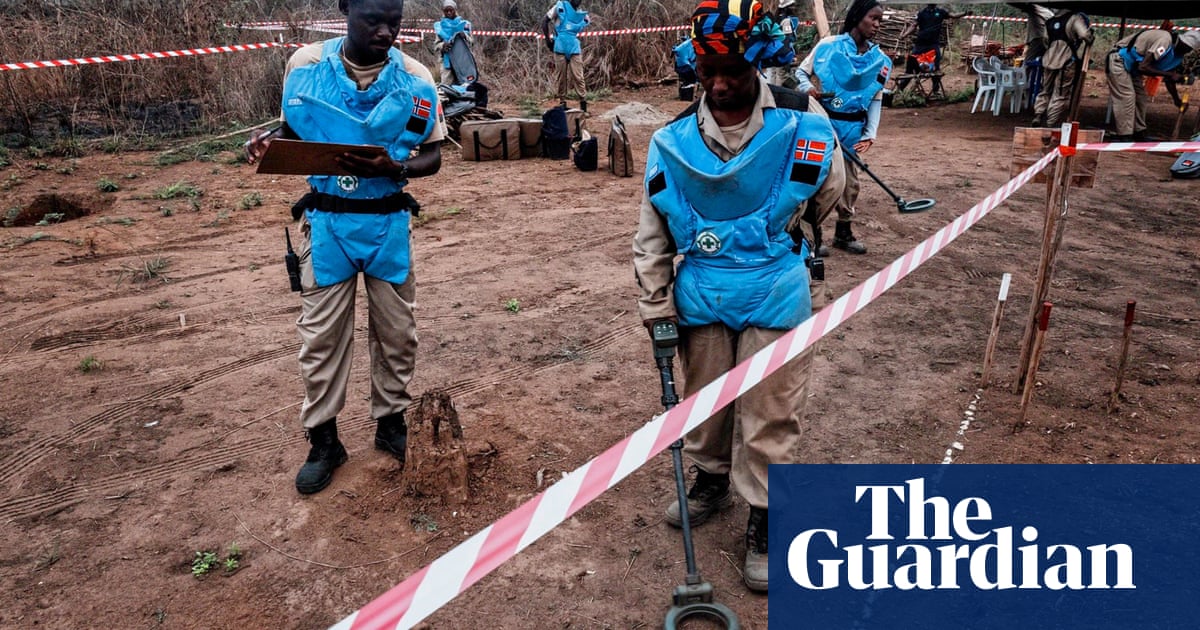International aid groups axe thousands of jobs in wake of Trump funding freeze

Some of the world’s largest aid organisations are axing thousands of jobs as a result of US president Donald Trump’s freeze on overseas aid, potentially “decimating” the sector’s ability to react to future crises.
Those that have already announced job cuts include the International Rescue Committee, Danish Refugee Council, Norwegian Refugee Council and war zone-focused Norwegian People’s Aid.
Catholic Relief Services has also warned staff to expect losses and there is concern among workers at Save the Children, whose US wing was more than half-funded by the government agency USAid, that cuts could lie ahead.
Save the Children did not comment on job losses but said it was conducting a review of its budget “to ensure we do everything we can to continue running as many of our life-saving programmes for children as possible.
“While we continue to advocate for the restoration of foreign assistance and our programmes – meeting with lawmakers, working within coalitions, and amplifying our message – it has become clear that we must take urgent steps to secure our financial sustainability,” it said in a statement.
David Miliband, the CEO of the IRC whose salary package – over $1m in 2022 – is one of the highest in the humanitarian sector, said senior staff would take a 20% pay cut. In a letter to staff he wrote: “As much as we would like to believe there will be some relief of the financial pressure on our organisation and that our programmes will be able to resume, the reality is that there will assuredly be a significant reduction of [US government] support for our programmes this fiscal year, impacting services and staffing.”
The IRC has previously said it has more than 17,000 global staff.
Since 20 January when Trump announced the 90-day freeze of much of the US’s $72bn (£57bn) spending – including the suspension of USAid, which is responsible for $40bn of that total – there have been reports of hundreds of humanitarian and aid project closures in more than 200 countries. USAid has had nearly all of its 10,000 staff sacked, furloughed or put on leave.
A report released this week by the International Council of Voluntary Agencies (ICVA), a network of aid groups in 160 countries, found 55% of affected organisations surveyed had to fire or suspend staff or place them on leave.
It said the cuts were at every level, from people working in coordination, advocacy and policy to field workers in communities and refugee camps.
“We’re not just losing jobs – we’re losing decades of accumulated expertise, institutional knowledge and established networks that are crucial for effective aid delivery,” said Lee Crawfurd, a research fellow at the Center for Global Development. “Recruiting and training new staff with specialised skills and regional expertise takes years, not months, and some of that expertise may be permanently lost as experienced professionals are forced to leave the sector entirely.”
Crawfurd called the job cuts by big international NGOs “the tip of the iceberg”, saying there would be knock-on effects for local NGOs with limited resources who relied on financial support from larger aid groups.
ICVA’s report said that most of the affected organisations were having to take on the burden of redundancy payments and may face legal action from employees suddenly fired, despite in many cases not having been paid by USAid for work completed.
The report said the cuts were “decimating” the humanitarian sector’s ability to react to future crises.
UNAids said nearly 20,000 community health workers providing HIV services in Mozambique and 15,000 in South Africa had received stop work orders.
Zoe Abrahamson of Bond, the UK network for organisations working in international development, said the lack of clear communication over the future of funding was causing a huge amount of uncertainty.
“The organisations are owed millions of dollars from USAid for work they completed in 2024 and now face uncertainty over whether they will be reimbursed, let alone able to carry out much-needed and often life-saving work with communities that was budgeted for 2025 and beyond,” she said.
Related
A top recruiter says sports marketing roles are hot right…
Jobs are opening up in the sports industry as teams expand and money flows into the industry.Excel Search &
Public employees and the private job market: Where will fired…
Fired federal workers are looking at what their futures hold. One question that's come up: Can they find similar salaries and benefits in the private sector?
Mortgage and refinance rates today, March 8, 2025: Rates fall…
After two days of increases, mortgage rates are back down again today. According to Zillow, the average 30-year fixed rate has decreased by four basis points t
U.S. economy adds jobs as federal layoffs and rising unemployment…
Julia Coronado: I think it's too early to say that the U.S. is heading to a recession. Certainly, we have seen the U.S. just continue t










